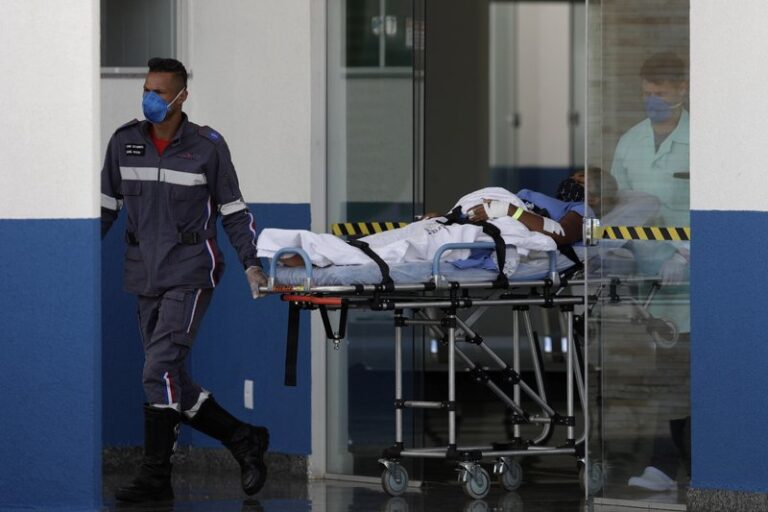
(AP) — Brazil’s COVID-19 death toll, which surpassed 250,000 on Thursday, is the world’s second-highest for the same reason its second wave has yet to fade: Prevention was never made a priority, experts say.
Since the pandemic’s start, Brazil’s President Jair Bolsonaro scoffed at the “little flu” and lambasted local leaders for imposing restrictions on activity; he said the economy must keep humming along to prevent worse hardship.
Even when he approved pandemic welfare payments for the poor, they weren’t announced as a means to keep people home. And Brazilians remain out and about as vaccination has started up — but rollout has proven far slower than was anticipated.
“Brazil simply didn’t have a response plan. We’ve been through this for the last year and still we don’t have a clear plan, a national plan,” Miguel Lago, executive director of Brazil’s Institute for Health Policy Studies, which advises public health officials, told the Associated Press. “There’s no plan, at all. And the same applies to vaccination.”
Whereas other countries’ daily cases and deaths have fallen, Latin America’s largest nation is parked on an elevated plateau — a grim repeat of mid-2020. In each of the last five weeks, Brazil has averaged more than 1,000 daily deaths. Official data showed a confirmed death toll total of 251,498 on Thursday.
At least 12 Brazilian states are in the midst of a second wave even worse than the one faced in 2020, said Domingos Alves, an epidemiologist who has been tracking COVID-19 data.
“This scenario is going to get worse,” Alves told the AP, adding that the virus was spreading faster among the population. In Amazonas state, where the capital, Manaus, saw hospitals run out of oxygen last month, there have been more than 5,000 deaths in the first two months of the year, about as many as in all of 2020.
“It is the most difficult moment that we have had since the confirmation of the first case,” Carlos Lula, chair of the National Council of Health Secretaries, was quoted as saying Thursday by O Globo newspaper. ”We have never had so many states with so much difficulty at the same time.”
Alves and other public health experts said the spread is exacerbated by authorities’ reluctance to follow recommendations from international health organizations to implement stricter restrictions.
It is up to governors and mayors to impose lockdowns or other restrictions to contain the virus. The states of Sao Paulo and Bahia recently introduced nighttime curfews, but experts say the moves are too late and insufficient.
“They are not containment measures; they are palliative measures, always taken after the fact,” said Alves, who is also an adjunct professor of social medicine at the University of Sao Paulo. “‘Lockdown’ has become a curse word in Brazil.”






